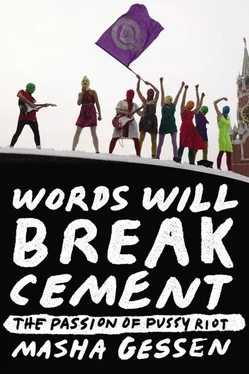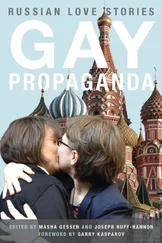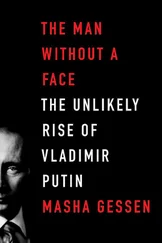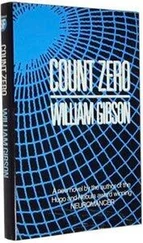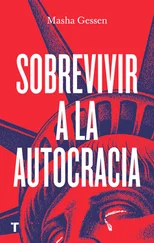“What struck me—aside from the way she looked,” said Petya, acknowledging the obvious, “was that she was this girl from Norilsk, a first-year student, and she had an idea of who the Moscow Conceptualists were. You have to understand that as far as the aesthetics chair of the philosophy department was concerned, Andy Warhol was edgy.” Whereas Petya and Nadya knew that Andy Warhol was ancient history, Moscow Conceptualism was the past, and they were the future.
“THEORY WRAPPED ME in an entire climate of description. Theory was simply, shoulder-shruggingly, the only thing that helped me to see what I was and where,” writes the American memoirist Marco Roth. “Part of what Theory promised was an idea that another world was still possible, not in some mythical afterlife, but on this earth, now, that the life around me did not have to be the only one. There was no fixed human nature except to take in and shape what was around us. And almost everything around us was now the result of some sort of human endeavor, like the soy formula I’d been nursed on. We were culture and artificiality and engineering all the way down. What was made could thus be unmade.”
I recognized that description. And this too: “Semiotics is the first thing that smacked of revolution. It drew a line; it created an elect; it was sophisticated and Continental; it dealt with provocative subjects, with torture, sadism, hermaphroditism—with sex and power.” This from Jeffrey Eugenides’s novel The Marriage Plot .
Nadya described it as “getting shivers.” This happened to her when she read the French philosopher Gilles Deleuze. Even in 2007, long after the generation of students who felt they had discovered Theory had grown old enough to write about it wistfully, and long after the humanities had been declared dead in the West, repeatedly, it made her feel like the world was becoming clearer and infinitely more complicated at the same time. It was exhilarating.
The world outside Moscow State University at the start of 2007 was just as stultifying as the world inside it. Vladimir Putin, once a low-level KGB staffer, was in his eighth year of running the country. His luck showed no sign of running out. The price of oil, which had grown nearly fourfold since 2000, had begun its steepest climb yet: it would nearly double in a year. Russia was flooded with money. Luxury boutiques could not keep goods in stock. Nor could the Bentley dealership that had opened up a block from the Kremlin: the country’s yearly quota of the latest model would be bought up in a matter of days—for cash. Russia’s most popular writers were a man and a woman who authored what barely passed for fiction about the lifestyles of the Russian rich. Each commanded a million dollars a book and they could not keep up with reader demand.
The liberal right wing—the economic reformers of the 1990s—had started out on and by Putin’s side, then a number of them broke ranks, tried to establish opposition parties, and failed. In the years it had taken them to change their minds, Putin had systematically disassembled the country’s electoral system and taken over all federal and most local television channels, so that there was little left for opposition politicians to work with, or for. The left-wing establishment—the Communist Party and its satellites—was firmly and comfortably in the Kremlin’s pocket. In 2005, chess champion Garry Kasparov, one of Russia’s most respected and beloved men, announced he was giving up chess to take up the cause of toppling the Putin regime. He found himself unable to rent a hall anywhere in the country. He did, however, succeed in hammering together a ragtag coalition that staged a series of street protests called the Marches of the Disagreeable. These dissipated in 2008 after the police started detaining known activists in the days leading up to scheduled protests.
In December 2006, at the end of Nadya’s first semester in Moscow, more than five thousand people showed up for a March of the Disagreeable, for which a permit had been denied by the authorities. They tried to force their way through a police cordon; more than a hundred people were detained. Four months later, as many as a thousand activists were detained as they left their homes to go to another banned march. Still, about five thousand people showed up and several hundred managed to break through a police cordon and march for about half a mile before the protest was broken up by police. To Petya and Nadya, who took part in some of these protests, it did not exactly feel like change was in the air but it was at least clear that they were not the only people in Russia who would speak out against the suffocating political uniformity, the overwhelming mediocrity, and the obsessive consumption of Putin’s Russia.
———
PETYA’S BEST FRIEND, Oleg Vorotnikov, a philosophy department graduate, had been trying on the role of contemporary artist. Oleg’s wife, Natalia Sokol, was a physicist turned photographer, and in 2005 they had formed what they called an art collective, though it appears to have comprised only the two of them and it is not entirely clear what kind of art they did—or, really, whether they did any. Now the two couples, Oleg and Natalia plus Petya and Nadya, would form a new art group. By February 2007, they settled on a name: Voina, or “War.”
There remained the question of what this art group was going to do. It was definitely not going to rebroadcast the message of the opposition, which was as stilted as any set of political clichés anywhere—it was a miracle this language had inspired anyone to come out into the streets. The small art scene hardly offered an alternative. The scene was dominated by commercial giants like AES+F, a four-person art group that represented Russia that year at the Venice Biennale with a video called “Last Riot,” in which planes collided without bursting into flames and gangs of staggeringly beautiful teens clashed without shedding blood. The art world’s emerging star was Victor Alimpiev, who created ethereal works that looked like traces of snow against a pleasantly gray sky and who emphasized that his work was in no way tied to current events or, more generally, to the place and time in which it was created. A group called the Blue Noses provided an alternative to the high gloss of the mainstream art scene; its work was all irony all the time, which basically meant it was a collection of caricatures.
It was not the artists’ or the politicians’ fault, this desolate state of affairs. To a large extent, it was the Soviet Union’s fault. In all societies, public rhetoric involves some measure of lying, and history—political history and art history—is made when someone effectively confronts the lie. But in really scary societies all public conversation is an exercise in using words to mean their opposites—in describing the brave as traitorous , the weak as frightening , and the good as bad— and confronting these lies is the most scary and lonely thing a person can do. These are the societies of Aldous Huxley’s Brave New World or Yevgeny Zamyatin’s We , which preceded it. In Zamyatin’s utopia, the guillotine was known as the Machine of the Benefactor, people were known as Numbers, and the power of words was well understood: “Whoever feels capable must consider it his duty to write treatises, poems, manifestos, odes, and other compositions on the greatness and beauty of the United State.” Zamyatin had based his dystopia on the Soviet state he witnessed being constructed. Half a century after his death, real words that corresponded to actual facts and feelings broke through in a sudden, catastrophic flood and brought down the Soviet Union. But that heady period of Russian history was winding down by the time Petya and Nadya were learning to talk. Voina faced a challenge that perhaps exceeded challenges faced by any other artist in history: they wanted to confront a language of lies that had once been effectively confronted but had since been reconstructed and reinforced, discrediting the language of confrontation itself. There were no words left.
Читать дальше
